Stay in the know on all smart updates of your favorite topics.
'Eerlijk data delen start met goede compliance' – Sander Klous (KPMG)

Het delen van data is een belangrijke motor voor vooruitgang in de samenleving. Ook als die informatie gevoelig is voor privacy en concurrentie. AMdEX, een initiatief van Amsterdam Economic Board en partners, ontwikkelt een manier om data veilig en verantwoord te kunnen delen, met behoud van controle voor data-eigenaars.
Sander Klous (KPMG) is een van de partners die het team achter AMdEX ondersteunen. Dit team werkt aan de ontwikkeling van een 'digitale notaris', die contracten levert aan organisaties die data willen delen. Ook dwingt AMdEX de voorwaarden hierin juridisch af. De contracten ondersteunen eenvoudige datatransacties tussen twee organisaties. Maar ook complexe AI-algoritmen, die toegang moeten hebben tot data die op meerdere plekken is opgeslagen.
Wetten en regels
“Momenteel zijn er geen goede mechanismen om de naleving van de vele regels en voorschriften rond data en AI af te dwingen of zelfs maar te controleren”, zegt Sander Klous. “In andere regelgevingsdomeinen stellen bedrijven als KPMG, als onafhankelijke derde partij, organisaties in staat om hun compliance aan te tonen via een auditproces. Helaas is dit proces ingewikkeld wanneer het gaat om data en AI."
Lees het complete interview met Sander Klous om meer te weten over het belang van eerlijk en veilig data delen.
Research Interview
Dear All,
I am writing to introduce myself as a final year student studying Science and Management of Tourism. Currently, I am working on my thesis which focuses on the topic of how intelligent technologies are used by Destination Management Organizations (DMOs) of smart destinations to manage tourist flows : Case studies of Amsterdam and Venise.
As part of my research, I am seeking information on the use of smart technologies and their effectiveness, as well as data collection methods. I understand the sensitivity of this subject and assure you that any information shared will remain completely anonymous.
If you or anyone in your organization has knowledge or expertise in this area, I would be grateful for the opportunity to learn from you. I am available to meet with you in person and can travel from Brussels if needed. Your insights and contributions would be invaluable to the success of my research.
Thank you for considering my request. I look forward to hearing from you soon.
Bassmasrar99@gmail.com
Research Interview on Digitalization and Big Data in City Administrations
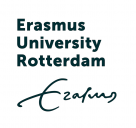
My name is Joe Calodich and I work as a researcher at Erasmus University Rotterdam in the research group Vital Cities and Citizens. I am currently looking for members of the city administrations in Amsterdam, Rotterdam, Prague, Tallinn, Vienna, Zurich, Brussels, or Munich who are interested in participating in a research interview.
The study which I am asking your participation for focuses on how large European cities have undertaken the digitalisation process of the public administration and how this process has affected the workings and the policies. I would also like to learn about some concrete examples on the use of big data related to this digitalisation process.
I hope to complete the interviews by the end of February 2023. Each interview will last between one hour and fifteen minutes and one hour and a half. The interview will be recorded and the content will be exclusively used for academic purposes (analysis, scientific publications, presentations, reports) and within the boundaries of the study’s goals. The gathered information will be treated by complying with anonymity and confidentiality criteria as defined in the social sciences regarding the use of personal information.
If you, or a colleague, is interested in participating, please send me an email at: 627583jc@eur.nl.
I look forward to hearing from some of you soon!
Waag Open: Installeer je eigen server
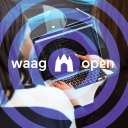
Neem het heft in eigen handen en word onafhankelijk van de extractieve businessmodellen van grote bedrijven die een cloud aanbieden. Tijdens Waag Open op donderdag 2 maart leer je hoe je de cloud verlaat door je eigen server te bouwen.
Als we nu willen samenwerken aan dezelfde bestanden, dan werken we vaak in de cloud. De cloud laat ons gemakkelijk bestanden delen, videogesprekken voeren en meetings inplannen in elkaars agenda. De cloud is een service die meestal door een bedrijf wordt geleverd. Het verbindt en synchroniseert verschillende computers met elkaar.
De term ‘cloud’ is vaag en impliceert iets lichts en immaterieels. Klopt dat wel? Achter een cloud liggen fysieke ruimtes vol met servers, kabels, computers en infrastructuur. Er is niks licht, immaterieel of mystiek aan een datacenter.
Alles wat je op Google Drive opslaat, wordt geanalyseerd om een profiel over je te maken, wat uiteindelijk wordt verkocht om je gepersonaliseerde reclame te tonen. Veel mensen zijn zich wel bewust van dit soort praktijken. Maar hoe ontsnap je aan dit soort ogenschijnlijke 'gratis' tools. Voor veel mensen geldt dat het gevaar van extractieve businessmodellen niet opweegt tegen het gemak van de gebruiksvriendelijke interfaces van een service zoals Google Drive.
Om het heft terug in eigen hand te nemen gaan we tijdens deze Waag Open aan de slag met het bouwen van je eigen server. Vroeger het domein van code-ninjas en nachtelijke nerds, maar nu voor iedereen binnen handbereik. Tijdens de workshop laat Douwe Schmidt zien hoe je je eigen server inricht, onderhoudt en gebruikt.
Benodigdheden:
- Een laptop met MacOS of Linux (helaas is er geen Windows support)
- Een oplader of volledig opgeladen accu
Programma
19:30 - 19:45 Welkom & introductie door Waag
19:45 - 21:15 Workshop door Douwe Schmidt: aan de slag met een eigen server
21:15 - 21:30 Plenaire samenvatting van de ervaringen en inzichten
21:30 - 22:00 Afronding en vragen
Dit evenement is in het Nederlands.
Wat je tijdens de workshop zult leren:
- Wat is een (virtuele private) server?
- Hoe krijg ik toegang tot mijn server?
- Hoe geef ik mijn familie en vrienden toegang?
- Hoe installeer ik Nextcloud?
- Wat kan ik met een eigen server?
Waag Open
Elke eerste donderdagavond van de maand opent Waag haar deuren! Kom langs om te discussiëren en te doen. Want we gaan niet alleen in discussie over maatschappelijke thema's en de toekomst - je leert daarnaast ook altijd iets praktisch. Iets dat je altijd al hebt willen uitproberen, zoals de 3D-printer in het FabLab, of juist iets dat je nooit had verwacht, zoals uitpluizen hoe DNA in elkaar zit in ons biotech-lab. Waag Open vindt plaats in (een van) de maakplaatsen op de eerste en tweede verdieping van het historische Waaggebouw op de Nieuwmarkt.
Mocht je krap bij kas zitten en wel graag aan dit evenement willen deelnemen, neem dan contact op met tanja [@] waag [punt] org.
<em>Met dank aan de sponsoring van Greenhost kunnen de eerste 30 deelnemers aan de slag met het inrichten van een eigen server en die vervolgens 3 maanden onderhouden en gebruiken.</em>
Final Showcase at Digital Society School
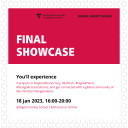
In the last 20 weeks, our digital transformation design trainees from all over the world learned, experimented, and prototyped to envision what the future holds for us to pursue a more just and sustainable society. The topics vary from Hybrid Democracy, Digital Twin, Design across Cultures, to EdTech for Social Change.
✨RSVP here (online or in person)
Feel free to invite your network and whoever might be interested!
🎯Digital Society School is an empathetic learning community where you get to connect with experts and like-minded people who are striving to create a better future in education, sustainability, design, and more.
For more information on our current projects, visit our website.
https://digitalsocietyschool.org/
We cannot wait to welcome you for co-creating and rethinking our values to make a positive social impact!
Kennissessie ChatGPT

ChatGPT in het onderwijs: een bedreiging of een kans?
Een sensatie op het gebied van Artificial Intelligence, zo wordt ChatGPT door velen genoemd. Deze superslimme chatbot spuugt goedlopende lappen tekst uit en begrijpt opdrachten in gewone taal.
De technologie achter ChatGPT, ontwikkeld door het bedrijf OpenAI, is een taalmodel dat getraind werd op een enorme hoeveelheid data. Inmiddels loopt het storm en ligt de website er geregeld uit door de enorme belangstelling.
Maar wat betekent deze ontwikkeling voor ons onderwijs? ChatGPT zingt al rond in de docentenkamers van de Hogeschool van Amsterdam (HvA). Pascal Wiggers - Associate Lector Responsible AI aan de HvA - tempert de AI-toepassing als sensatie: "ChatGPT kan zeer geloofwaardige, maar niet altijd juiste antwoorden geven op willekeurige vragen. Toch lijkt de toepassing over enige zelfkennis te beschikken."
Betekent dat dat kennisvragen, samenvattingen en essays verleden tijd zijn of zal het zo’n vaart niet lopen? Of biedt ChatGPT juist hele nieuwe mogelijkheden? Wat denken AI-specialisten, onderzoekers en onderwijskundigen hiervan?
Tijd om het gesprek aan te gaan
Met elkaar én met ChatGPT! We nodigen je uit voor een kennissessie over de rol van AI in het onderwijs.
Dinsdag 24 januari 2023 | Vanaf 15:00 | HvA Jacoba Mulderhuis | Gerard van Haarlemzaal, begane grond
Meld je aan door op de link hieronder te klikken
Waag Open: Black Mirror Stories

Speel mee met Black Mirror Stories van kunstenaar Roos Groothuizen, een kaartspel geïnspireerd op het bestaande spel Black Stories en de populaire serie Black Mirror. Lukt het jou om ze te ontrafelen?
De afgelopen jaren zijn de grootste spelers in de technologie, waaronder Facebook, Google en TikTok in opspraak geraakt door allerlei schandalen. Hun diensten zouden schadelijk zijn voor onze gezondheid, ons zelfvertrouwen, onze kennis en de democratie.
Digitale technologie is gigantisch en ontwikkelt zich zo snel, dat politici er maar weinig grip op krijgen. Zelfs de ontwikkelaars van de technologie zeggen dat ze “niet wisten waar ze aan begonnen” voordat alles uit de hand liep. Zo heeft onder andere de bedenker van de like-knop spijt van zijn uitvinding.
Hoe zouden die negatieve gevolgen in de toekomst voorkomen kunnen worden?
Het bedenken van verhalen en fantasieën heeft ons vaak geholpen bij dit vraagstuk. (Science-fiction)verhalen vormen tastbare voorbeelden die we in gesprekken, ontwerpen en zelfs wetsvoorstellen gebruiken om recente en toekomstige gebeurtenissen te kunnen begrijpen en in te kaderen. Door scenario’s te bedenken, kun je de consequenties van (bijvoorbeeld) technologie tastbaar maken.
Het spel Black Mirror Stories bestaat uit geïllustreerde kaarten met dystopische, tech-gerelateerde raadsels. In deze workshop creëer je na het spelen van het spel ook je eigen scenario’s door Black Mirror Stories te bedenken.
Black Stories is een kaartspel met gitzwarte raadsels. Een speler heeft een raadselkaart vast en de andere spelers moeten raden wat er met het personage in het verhaal mis is gegaan door ja/nee-vragen te stellen.
Black Mirror is een televisieserie. Elke aflevering is een ander verhaal waarin technologische ontwikkelingen van deze eeuw centraal staan.
Programma
19:15 deur open
19:30 - 19:40 welkom & introductie door Waag
19:40 - 19:50 introductie door Roos Groothuizen
19:50 - 20:00 start spel Black Mirror Stories
20:15 - 21:00 workshop: bedenk je eigen toekomstscenario
21:00 - 22:00 terugkoppeling, napraten en borrel
Over de kunstenaar
Roos Groothuizen is een mediakunstenaar die strijdt voor digitale mensenrechten. In haar praktijk en binnen het kunstcollectief Telemagic doet ze onderzoek naar de menselijke kant van onzichtbare algoritmes, informatiefilters en oneerlijke distributie.
Waag Open
Elke eerste donderdagavond van de maand opent Waag haar deuren! Kom langs om te discussiëren en te doen. Want we gaan niet alleen in discussie over maatschappelijke thema's en de toekomst - je leert daarnaast ook altijd iets praktisch. Iets dat je altijd al hebt willen uitproberen, zoals de 3D-printer in het FabLab, of juist iets dat je nooit had verwacht, zoals uitpluizen hoe DNA in elkaar zit in ons biotech-lab. Waag Open vindt plaats in (een van) de maakplaatsen op de eerste en tweede verdieping van het historische Waaggebouw op de Nieuwmarkt.
Toegankelijkheid
Omdat het Waag-gebouw een beschermd monumentaal pand is, is het helaas niet voorzien van een lift. Dit evenement vindt plaats in de Makersguild op de eerste verdieping van het Waag-gebouw.
OBA expositie: Digital Shadows

Welke sporen laat jij achter als je online gaat? Met vijf werken van lokale en internationale kunstenaars toont de expositie Digital Shadows van Waag Futurelab onze verstrengeling met digitale technologieën, sociale media en algoritmes. De werken werpen een nieuw licht op onze dagelijkse verhouding tot technologie.
Elke keer als we een digitale service gebruiken, laten we een digitale schaduw achter. Adverteerders en databedrijven tracken zorgvuldig je digitale schaduw: de websites die je bezoekt, de producten die je liked en de onderwerpen die je aandacht vasthouden. Hoe beter ze je kennen, hoe beter ze je kunnen benaderen met gepersonaliseerde producten of verleidelijke ideeën.
‘Schaduw’ hier betekent niet alleen de sporen die je achterlaat, maar ook de algoritmes en fysieke infrastructuur die vaak minder zichtbaar is. Deze tentoonstelling kijkt naar de gevolgen van de snelle digitalisering van onze levens, en de onbewuste vooroordelen die dat opwerpt in de schaduwen. Door verschillende internationale en lokale kunstenaars bij elkaar te brengen, werpt de expositie een licht op de kritische, speelse, feministische, futuristische en anti-commerciële kanten in de digitale wereld.
De schijnbaar onaantastbare digitale schaduw heeft altijd een fysieke evenknie. Hoewel niet altijd zichtbaar of herkenbaar, is de digitale en virtuele werkelijkheid gebouwd op de fysieke wereld — denk aan de servers, onderzeese kabels, de mineralen in je smartphone en de elektriciteit waarop je computer werkt. Deze tentoonstelling daagt je uit om na te denken welke materialen en interfaces we aanraken in de digitale ruimte. Welke vooronderstellingen, uitbuitingssystemen en afval creëren we hiermee? Kan het ook anders?
Wat te verwachten
Deze tentoonstelling bestaat uit vijf kunstwerken. Elk werk kietelt je brein om op een nieuwe manier na te denken over jouw digitale schaduw en de technologieën in je smartphone of laptop. We nodigen je uit om ze te bekijken en de interactie aan te gaan.
TheirTok (1) van Tomo Kihara (JP) onderzoekt op een speelse manier waarop algoritmes een profiel van je opbouwen en je aandacht vasthouden, om je data voor geld te verkopen aan reclamebedrijven. Gestures of Truthfulness (2) door Caroline Sinders (US/GB) kijkt naar hoe informatie op sociale media als ‘betrouwbaar’ wordt bestempeld, en de gebaren en scenografie waarmee iets als waarheid wordt gepresenteerd. Kunstenaar Lukas Engelhardt (DE/NL) duikt in de materialiteit van servers en de politieke relevantie van self-hosting met zijn werk Squatting the Cloud(3).
Ibiye Camps (GB) Behind Shirley (4) bekijkt de ontstaansgeschiedenis van raciale vooroordelen in gezichtsherkenningstechnologie en hoe je dit kunt tegengaan. Als onderdeel van zijn onderzoeksproject Disobedient Devices toont Dani Ploeger (NL) Een korte film, The Cults (5), met een sciencefiction perspectief op de toe-eigening van verouderde consumententechnologieën ('orodha' in Kiswahili) en de transformatie ervan tot apparaten met nieuwe toepassingen en betekenissen, een gangbare praktijk in Kenia.
Feestelijke opening
Kom je naar de feestelijke opening op vrijdagavond 9 december? We beginnen met een verdiepende panel talk met kunstenaars en experts, gevolgd door de officiële expo opening met een borrel en muziek!
Programma
15:30 - 17:00 uur: Panel talk met o.a. Ibiye Camp en Tomo Kihara (meld je hiervoor aan via de button)
17:30 - 19:00 uur: Officiële opening + borrel
Panel talk
In het openingspanel van Digital Shadows zullen deelnemende kunstenaars van de expositie samen met Waags onderzoeksdirecteur in gesprek gaan over prominente elementen van verantwoording in de sterk algoritmisch gemedieerde relaties die we in het digitale domein aangaan, bijvoorbeeld in de sociale media. Wie heeft de touwtjes in handen? Hoe kunnen we ons tegen die controle verzetten? Wat zijn de uitgangspunten of behoeften om het vertrouwen te herstellen? En wat is het gewenste beleid van aandacht?
Vanuit hun werken zullen de kunstenaars oplossingen presenteren om onopgemerkte elementen, de materialiteit en de gevolgen van de programmering van onze digitale systemen, zichtbaar en ervaarbaar te maken. Ze maken een cartografie van vooroordelen en controlemechanismen en voeren prefiguratief verzet en creatieve alternatieve manieren van relateren in de digitale transformatie uit.
meld je aan voor de panel talk
Workshops & rondleidingen
Als randprogrammering bij de tentoonstelling kun je je binnenkort inschrijven voor een workshop met kunstenaar Tomo Kihara op zaterdag 2 december om 14:00 uur. Daarnaast geven we rondleidingen in de OBA. De exacte data en tijden worden binnenkort bekend gemaakt.
Over deze expo
De tentoonstelling Digitale schaduwen is gecureerd door Waag Futurelab en mede gefinancierd en ondersteund door de Openbare Bibliotheek Amsterdam. Het is onderdeel van het Europese onderzoeksproject Artsformation, waarbij kunstenaars bijdragen aan het ontwerpen van meer open, eerlijke en inclusieve technologieën.
Responsible Sensing Lab anniversary event

The Responsible Sensing Lab team invites you to their 2nd anniversary event!
At the Responsible Sensing Lab we research, develop and integrate smart technologies to help solve urban challenges. At the same time, we explore how to embed society’s public and democratic values in the design of these innovations.
On 16 February 2023 from 3.00 - 6.30 pm we will celebrate our 2nd anniversary with a hybrid event in the IJzaal of Pakhuis de Zwijger in Amsterdam.
Together with you, we'd like to reflect on our achievements since our official start and look ahead to our plans for the upcoming period. Rector Magnificus Peter-Paul Verbeek will provide a keynote. His research is centered around the relationships between humans, technology and society and focuses on philosophical analysis, ethical reflection and practices of design and innovation.
Please register so we know how many of you will join us in Amsterdam and online.
AMdEX Community Update
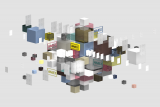
Please join us on 10 November from 4:00-5:00 pm to hear more about how AMdEX is moving forward in facilitating a safe and controlled way to share your sensitive data with others.
Programme
- Welcome
- AMdEX Game – a sneak preview – AMS-IX
- How does AMdEX help you with exchanging sensitive data?
Showcases on sharing sensor data – Dexes
eFLINT: machine readable and enforceable rules – UvA
AMdEX making datacommons work – Waag - Q&A and panel discussion
At the end of the programme, you’re invited to enjoy a drink and meet the other participants. Join us by registering here.
Participate in the '5 questions to' series about your research
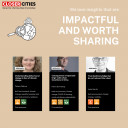
🔄 How shareable is urban knowledge? Through scientific research, the Closer Cities urban initiative focuses on 'barriers and boosts' of knowledge sharing: what hinders it, what stimulates it, and how can we use these insights in optimizing knowledge sharing?
Closer Cities seeks to answer these questions. We are motivated by the urge to share what's shareable. It is our mission to make knowledge that is currently “invisible”, tied to its origin and unrecognized by the larger urban community, visible and shareable. In the end, we strongly believe that a better exchange and use of urban knowledge and experience can have a significant positive societal impact.
'5 questions to' series
As part of the platform, we showcase the extensive array of existing urban research. We developed the ‘5 questions to’ series in which we ask researchers and scientists to briefly reflect on their research (project) and the shareability of their insights by answering five questions.
How to participate
Closer Cities is calling all scientists to participate in our '5 questions to' series. The insights you share via the five questions form will be published on the Closer Cities website. Accordingly, you contribute to our aim of optimizing the shareability of knowledge. In turn, we would like to give you the opportunity to share insight from your research. Interested in participating? Fill out the five questions here.
Would you like to discover all five question interviews on our platform? Check them out here.
About Closer Cities
The Closer Cities urban research project (2021-2030) aims to contribute to achieving the UN Sustainable Development Goals (SDGs). We focus on the optimization of cocreating and sharing urban knowledge. In order to get a better understanding of this process, we need to know what stimulates it and what hinders it. Or, in short, what are the barriers and boosts?
Any questions? Contact us!
Data Dilemma’s Recap: Fair data sharing with Amsterdam Data Exchange (AMdEX)
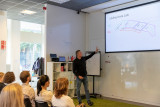
Data Dilemmas is a collaboration between Amsterdam Smart City and the City of Amsterdam’s Data Lab. During Data Dilemmas, we explore the possibilities for using data and new technologies to address urban and societal challenges, with a focus on responsible digitalization. The goal is to use data to make cities more safe, clean and accessible. But what happens to all the data that is collected? Which dilemmas do we encounter when we collect (personal) data to improve the city? These questions are important for everyone: governments, knowledge institutions, companies, and civil society. In the latest edition of Data Dilemmas, hosted on the 29th of September 2022, we invited Joep Meindertsma, Tom van Arman and Jan van Boesschoeten to take us through the experiences, dilemmas and lessons learned from the Amsterdam Data Exchange (AMdEX) initiative. Marit Hoefsloot from Waag gave a critical reflection on the presented Data Dilemmas.
Joep Meindertsma (Dexes) – Introduction to AMdEX
AMdEX is a collaboration between the Amsterdam Economic Board, AMS-IX, Dexes, the University of Amsterdam and Surf. AMdEX aims to give people more control over their data through a secure, trusted and neutral infrastructure which enables sharing data under specific conditions. AMdEX has two missions: give people more control over their data and make it more attractive to share data. These two missions are a data dilemma in itself.
Data exchange is currently monopolized by a handful of major players and the web is more centralized than ever before. The direct connections between people and organisations have become fewer. This is because we’re increasingly using middle-men, services between the data source and the user. Joep explains: “If you want to see someone’s vacation photos, you have to send a request to Facebook. Facebook owns the data, decides who can access it and dictates what the app looks like”. This problem is not limited to vacation photos or Facebook. It is about all our data. Almost all services are middle-men, with its own closed way of data sharing. This creates data silos – places where data is effectively locked away.
Joep refers to three types of data: “data we want to share, data we don’t want to share, and data we might want to share.” This ‘might share’ category often contains valuable data, but it can be costly or difficult to share. Set conditions makes sharing this data easier. AMdEX makes this possible through a few software projects they’re currently building: eFlint (a new language to describe legal constructs), DexPod (an open source personal data server) and Atomic Data (a specification and open source software to improve data interoperability).
Tom van Arman (Tapp) - AMdEX case study: Marineterrein Sensor Data
Meanwhile, the Marineterrein in Amsterdam is full of sensors, collecting all kinds of data. Think of MicroLAN measuring the water quality, or Public Eye collecting crowd data. Marineterrein is a ‘living lab’, where technologies that contribute to a sustainable and future-proof city can be tested. Together with AMdEX, Tom looked at how the collected data can be made accessible to third parties, such as researchers, journalists, students, artists and entrepreneurs. The Marineterrein and the data collectors, for example Public Eye, set conditions for the data to be used. Tom describes how this works in practice: “If a journalist is interested in using crowd data collected by Public Eye, they must be a member of the Marineterrein community and subscribed to AMdEX. If the journalists meets these requirements, they will receive an AMdEX email with a data download link.”
Jan van Boesschoeten (AMS-IX) - The Future of AMdEX
As Joep and Tom already mentioned, there are many questions around data: who owns the data, what are you allowed to do with it? How do you work together with your competitors to get more value out of your data? A data exchange can be a solution to these questions. This is why AMS-IX, a neutral member-based association that operates multiple interconnection platforms, is connected to AMdEX. Jan shortly describes the future of the AMdEX initiative. The field lab with use cases ends in June 2023, and at that time AMdEX also aims to be a legal entity. Additionally, one of their use cases involving KLM will be presented at AMS-IX’s MORE-IP community event in June. After that, AMdEX will onboard new use cases.
Marit Hoefsloot (Waag) – A critical reflection on the Dilemmas encountered in AMdEX
Last but not least, Marit Hoefsloot from Waag reflects on the dilemma’s presented by Joep, Tom and Jan. Marit describes that the use of data is often seen as an act of notion, whilst privacy is more of a passive notion (not using the data at all). However, it’s possible to use data whilst also protecting ones privacy. A good example of this is IRMA, a privacy-friendly digital wallet which can be used for authentication. As Marit pleads: “Data usage and privacy are not necessarily contradictory, it is about both.” Organisations should see protecting privacy as their own responsibility, instead of giving the illusion of consent with an opt-in or opt-out option.
The second dilemma Marit reflects on is about developer productivity vs. standardisation. Standardisation takes a lot of time, which takes away from innovation and productivity. However, you need standardisation to develop these kind of exchange platforms, as there are many organisations that are involved. Marit describes that the real questions we should talk about are: what is the flexibility of the standard? Do we create the standard together, or more top-down through legislation? Who are we standardizing for? “We should prioritise standardisation, but do it in an open and inclusive way.”
Would you like to join our next Data Dilemmas at Datalab? The upcoming session is scheduled on the 8th of December (topic and speakers to be announced). Keep an eye out on our platform for the programme!
Photography: Myrthe Polman
Robotica en programmeren voor kinderen

Gastworkshop Stadsplein: leer programmeren met een Arduino │10 - 18 jr.
Met een Arduino bouw en programmeer je een afstand-apparaat, dat piept als je te dicht bij iemand staat. [EN] With an Arduino you build and program a remote device that beeps when you are too close to someone.
Deze herfstvakantie geeft Wail Kherrazi (14) de workshop Bouw en programmeer een corona 1,5 meter afstand-melder, in de Maakplaats van de Bibliotheek Amstelland. Je leest hier meer over Wail en zijn afstand-melder.
Wil jij leren programmeren met een Arduino? Wil jij een afstand-melder maken, onder leiding van Wail? Grijp dan je kans en neem deel aan zijn workshop op 19 oktober!
Deze workshop is echt iets voor jou als:
- je houdt van techniek
- je graag creatief bezig bent
- de workshop geschikt is voor jouw leeftijd
- je het leuk vindt om samen te werken (tip: neem je vriendjes en vriendinnetjes mee, dan is samenwerken nog leuker!)
Let op: wil je meedoen? Leuk! Vergeet je dan vooral niet aan te melden, want vol=vol!
registration can be done via: https://amstelland.op-shop.nl/466/maakplaats-stadsplein-bouw-en-programmeer-een-corona-15-meter-afstand-melder-vanaf-10-jr
Meetup & demonstratie Responsible Sensing Lab

Graag nodigt het Responsible Sensing Lab je uit voor een meetup waarin we je meer vertellen over ons werk. We zullen enkele van onze projecten uitlichten en demonstreren. Iedereen is van harte welkom!
Wanneer?
Donderdag 27 oktober om 16.00 uur.
Programma
- 16.00 introductie Responsible Sensing Lab door Sam Smits (projectleider) en Coen Bergman (initiatiefnemer)
- 16.15 drie van projecten uitgelicht door Coen Bergman
- Simple sensors
- Shuttercam
- Shutterring
- 16.25 demonstratie Responsible Sensing Toolkit door Sam Smits
- 16.45 vragenronde en afsluiting
- 17:00 borrel + bezichtiging demomodellen
De meetup is in het Nederlands maar alle informatie over het Responsible Sensing Lab is ook in het Engels beschikbaar op onze website.
Data Dilemmas: Fair data sharing with Amsterdam Data Exchange (AMdEX)

Data promises to unlock solutions to many of the major challenges of our time. Unfortunately, accessing this data is not as easy as it seems. Who wants to share business-sensitive data with a competitor? Or privacy-sensitive data? Due to uncertainty about security, privacy and data ownership, less than 1% of all data is actually used, shared and analysed. At the same time, as individuals and organisations we often give away our data – without even realising it. Large tech parties collect, process and use data to make a profit.
In response to these challenges, Amsterdam Data Exchange (AMdEX) aims to shape the future of a fair data economy where data owners can securely share their data. Central to AMdEX is the premise that data are not shared without permissions from data owner. What conditions would you set before sharing your personal data? Or competitively sensitive information? Or your research data? The session presents key experiences, dilemmas and lessons learned from the AMdEX initiative and invites the audience to contribute to the discussion.
Agenda
- 15:50 – 16:00 Walk-in
- 16:00 – 16:10 Welcome and introductions, Leonie van den Beuken (Amsterdam Smart City)
- 16:10 – 16:20 Introduction to AMdEX, Joep Meindertsma (Dexes)
- 16:20 – 16:30 AMdEX case study: Marineterrein Sensor Data, Tom van Arman (Tapp)
- 16:30 – 16:40 Future of AMdEX, Jan van Boesschoeten (AMS-IX)
- 16:40 – 16:45 Critical reflection by Waag (speaker TBA)
- 16:45 – 17:00 Panel discussion
- 17:00 – 17:30 Wrap-up and networking drinks
About Data Dilemma Series
Data Dilemmas is a collaboration between Amsterdam Smart City and the City of Amsterdam’s Data Lab. Three times a year we explore the possibilities for using data and new technologies to address urban and societal challenges, with a focus on responsible digitalization. The goal is to use data to make cities more safe, clean and accessible. But what happens to all the data that is collected? Which dilemmas do we encounter when we collect (personal) data to improve the city? These questions are important for everyone: governments, knowledge institutions, companies, and civil society. Amsterdam Smart City would like to explore with you which decisions are needed for responsible use of data.
Registration
To join us please register via Evenbrite: https://www.eventbrite.com/e/data-dilemmas-fair-data-sharing-with-amsterdam-data-exchange-amdex-tickets-411897114357
The development of AMdEX is co-financed by the European Regional Development Fund
Let's measure the environmental impact of digital products & applications.

On September 16 we are inviting the Dutch Tech & IT community to an in-person workshop & knowledge-sharing sessions on measuring the environmental impact of digital products and applications.
We believe the key to reducing the environmental impact of the digital ecosystem is to make it transparent to the user of an application - to raise awareness of the environmental costs of their digital usage.
Join us !
Responsible smart doorbells

Photo: Daan Rozinga, The Incredible Machine
The Responsible Sensing Lab is currently working on a few projects regarding smart doorbells.
Smart doorbells are like a security camera's, but available for everyone. Always on, and owned by private parties, the smart doorbell is destined to have an impact on our privacy. As of now, there could be thousands of smart doorbells in Amsterdam, filming public space. We don t have a clear view on the numbers, and we do not know what the owners do with the collected data. Smart doorbell owners are often not aware of the privacy issues.
One of the Responsible Sensing Lab's projects is Shutterring. The Shutterring project aims to make smart doorbells more responsible by ensuring the privacy of bypassers and owners while keeping the main functionality of the device intact. Shutterring is a design by The Incredible Machine.
Inspired by Shutterring, the Lab has started another project regarding responsible smart doorbells: Challenging the design of smart doorbells. In order to challenge the current design of smart doorbells (IoT doorbells with integrated cameras) a few alternative smart doorbells have been created through speculative design. The goal of this project is to kickstart a conversation about how to deal with the presence of smart doorbells in the city of Amsterdam. How could smart doorbells be designed in a way that they align better with the values of the city and its population?
The Responsible Sensing Lab team will present both their smart doorbell projects during the demo day on 11 October. Stay tuned!
Interactive installation about sensors in the smart city

Discover how sensors make Amsterdam a smarter city. What measurements are taken and how is data being collected?
The Responsible Sensing Lab created the interactive installation Senses of Amsterdam that is currently exhibited at the public library of Amsterdam (OBA) location Slotermeer! Read more about this project on our website: https://responsiblesensinglab.org/news/senses-of-amsterdam-exhibited-at-oba-slotermeer
After traveling from NEMO Science Museum to Arcam, Senses of Amsterdam can now be visited free of charge at Slotermeerlaan 103E from Tuesday until Saturday.
The exhibition at OBA Slotermeer ends on 25 September 2022. Grab your chance!
Transities versnellen met slimme investeringen
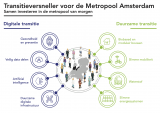
Samen slimmer investeren: daaraan werken Amsterdam Economic Board en Metropoolregio Amsterdam in de ‘Transitieversneller voor de Metropool Amsterdam’. Met dit inspiratiedocument versnellen zij de transities die nodig zijn voor de slimme, groene en gezonde metropool van morgen.
Er zijn acht investeringsthema’s geselecteerd: gezondheidsbevordering en preventie, waterstof, slimme elektriciteit, circulaire bouw, slimme mobiliteit, veilig data delen, artificial intelligence (AI) en een duurzame digitale infrastructuur. Deze thema’s bouwen voort op de kracht van onze regio en zijn in lijn met de financiële mogelijkheden en doelen vanuit Den Haag en Brussel.
Lees het artikel voor meer informatie.
Lector Nanda Piersma (HvA) benoemd tot hbo-kroonlid Sociaal Economische Raad

We zijn trots bij de Hogeschool van Amsterdam met de benoeming van lector Nanda Piersma tot kroonlid van de Sociaal-Economische Raad (SER). De ministerraad stemde vrijdag in met haar benoeming. Het is de eerste keer dat een lector kroonlid wordt van de SER.
Piersma is benaderd vanwege haar expertise op het gebied van digitalisering. Volgens de SER is digitalisering in steeds meer kwesties actueel. Piersma is lector Responsible IT bij de HvA. Ook is zij wetenschappelijk directeur van het HvA Centre of Expertise Applied Artificial Intelligence. Daarnaast is Piersma betrokken bij verschillende landelijke netwerken rondom datawetenschap zoals het platform Praktijkgericht ICT-onderzoek (Prio) en de Nederlandse AI coalitie (NLAIC). Lees meer.
Stay up to date
Get notified about new updates, opportunities or events that match your interests.

